Postcard from (East) Germany: Between a prayer house and an apple tree.
This blessing borrows song from the longing of a people to fly free again.
Dear fellow pilgrim,
Birds are singing while the organ plays in the little prayer house here in the East German countryside—a grass-roofed building that once served both as the village’s country school and its place of prayer and gathering. It has now been gently restored to its former beauty, after years of quiet neglect during GDR times.
It’s a hot summer evening, and the air in the small church room—filled to the brim—grows thicker by the minute. (Germans, for many reasons, don’t love air conditioning. That’s a story for another time.) So I escaped the communal sweat-lodge feeling and wandered outside to a bench beneath an old apple tree. The fruit is ripening and windfalls are scattered in the grass. Ribbons hang from an old shed. To my left, the chapel’s open doors welcome the warm air of evening.

The band inside plays a wide repertoire—from German classics to American country—offering, beneath the apple tree, an unexpected echo of my own soul, suspended between continents. Now it’s organ and violin again, the melodies drifting toward dance—twirling between inside and out.
So this (mid)weekly blessing comes to you once more from my home country, from a small village near the Polish border.
In recent weeks I’ve written about the “thin places” of returning home, of being in between—oceans away from my husband, and yet so close to my mother, whose Alzheimer’s often makes her feel oceans away, even as I sit beside her.
I’ve been walking through fog myself, unsure where I belong. Many of you resonated with that liminal space—the not-yet, the disoriented, the tender threshold. Some also shared how wearying it can be. I felt that too. And I confess—I went looking for a shortcut. I was trying to get through it, to get past the in-between.
And yet, friends, thin places are not meant to be passed through like tasks on a list. Eventually, I remembered what I already knew: this is exactly the place to be. Not in spite of the discomfort, but because of it. This is where new life begins—not in clarity, but in the fertile fog.
Just as I sit here now, not quite outside and not quite inside, I realize I am once again dwelling in the in-between. This garden bench, the open chapel, the evening music—carrying the tension of East and West, past and present, freedom and repression—so deeply mirrors my soul also.
And I must accept that this is the place I come to write for you: not a mountaintop, but a sometimes-gray liminal space. A space where weary souls gather, waiting for a glimmer of hope in the midst of the burdens we carry. That might feel heavy for some—and if it does, simply let the photos lure you into the dance. Receive the blessing. Let the birds sing to your heart instead.
For all weary souls, be reminded: this is The Cloister—a place where dancing monks and weary pilgrims mingle. A place where lilting dance tunes and stately organ hymns share the same air, where children play and birdsong rises, and where even the soul that has no words may find rest.
These past days have brought me not only deeper into the land of my upbringing, but into the heaviness that still lingers here. The aging of my parents. The long dark shadow of war still etched into gravestones in the cemetery that borders the parsonage I once called home. Villages where some houses crumble and others gleam. The memory of the dreadful adjective, (East) Germany, still lurking in parentheses, and also in the soil and bones.
I never truly felt at home here. As a village pastor’s child under the repression of the GDR regime, people crossed the street to avoid us. Only a few brave ones came to church on Sundays. We did not belong. Faith, higher education, questioning minds—all were suspect, dangerous, to a rigid system born in the trauma of the Second World War, a regime that often devoured its own children.
And now, decades later, I’ve made a home an ocean away, in the so-called land of the free. And I wonder: what has become of that freedom? Has my new home raised its own walls as high as the one that once divided East and West Germany—or now Israel and Palestine?
Where can a weary soul turn, in a world where the rich grow richer, where democracies are hollowed out by misinformation and apathy, where borders turn into prisons, and children are held captive for the crime of longing for home?
These thoughts keep spinning and twirling in the air around me as I rest between the prayer house and the apple tree on a summer’s eve. And what can I offer to you from this quiet corner of the world?
Perhaps only this: that in this very weariness, something sacred waits. If we stop running from it, if we sit with it gently, your soul may finally speak. Sometimes it weeps and sometimes it sings.
In the final light of evening, I remain under the apple tree and the band returns. The violin begins to sing—and with it, one of the most haunting songs from East German rock history: “Am Fenster” (By the window) by the band City. And suddenly it isn’t just the melancholy of this moment, but the echo of forty years of repression—of longing, endurance, and survival in the country where I spent my childhood. The song seems to hold it all, carrying the longings of a people—and my heart begins to tremble in bittersweet embrace.
So our blessing today comes—of all things—from an East German rock band. A song born under an atheist regime, yet filled with a soul-deep longing to fly free. The violin holds the trembling heart; the lyrics reach beyond borders, beyond ideologies—toward something that still sings in us.
With much love from the border lands — your Weary Pilgrim, Almut
🎶 Am Fenster: A Soul-Song from the East
🎧 Listen to “Am Fenster” by City. Here played together with the Berlin Philharmonics in 2021. (Give it time—the violin will carry you.)
First released in 1978, Am Fenster (“At the Window”) became an anthem for a generation caught between silence and longing, walls and wind. In the GDR, where creative freedom was always in cryptic negotiation with authority, this song slipped through the cracks and soared into hearts. It is one of the most powerful pieces to emerge from that time—not a protest song, but something deeper: a cry of the soul, suspended between constraint and flight.
✦ Translated Excerpts from „Am Fenster“, by City
Once to know—this will remain forever.
Not a frenzy lamenting the night,
not a shimmer of candles or swirling colors
soon chased away by morning gray.
Once to feel—deep in the blood:
This is mine. And only through you.
No longer cooling my brow at the window
where heavy mist once drifted by.
A bird is keening—oh, my feathers
Soaked with rain, I fly through the world
I fly through the world
I fly through the world
✢ A Blessing from the Window
By Chuck Huff
You, too, stand at the window
not merely looking out, also being seen—
seen by life, love, and the still wind that knows your name.
May your soul remember what it once felt deep in the blood—
something real, something yours,
despite fear or forgetting.
When the mist returns,
do not press your brow in sorrow,
but lift your face to the rain,
and fly— fly through the world,
spread your wet wings and fly
toward the light.
— CH
PS: If you can, leave a heart, a word or a line which resonated with you in the comments, so we know you have been here :-)
From the archive
Thank you for reading, sharing and supporting Cloister Notes, a letter for dancing monks, weary pilgrims and wounded healers in the intersection of psychology, philosophy and spirituality. Your support makes this labor of love possible.
If you have been moved by what you are reading do consider becoming a sustaining subscriber, joining our intimate communion of fellow pilgrims on the deeper way.
You can share this letter by simply forwarding this email or by sharing it online.
Thank you, thank you.
About Cloister Notes
A letter for dancing monks and weary pilgrims in the intersection of psychology, philosophy and spirituality. Contemplations on being human to deepen your path, nourish your heart and build wisdom within.
About The Weary Pilgrim
Almut is a German American psychologist turned philosopher turned writer, traveler, photographer, retreat leader and mother of a kindergartener. She has taught and published on authors like Kierkegaard, Buber, Frankl, Yalom, Edith Stein, and Hildegard of Bingen. Almut is also a Benedictine Oblate and lives with her family in a little college town in the American Midwest.
You can manage your subscription here.





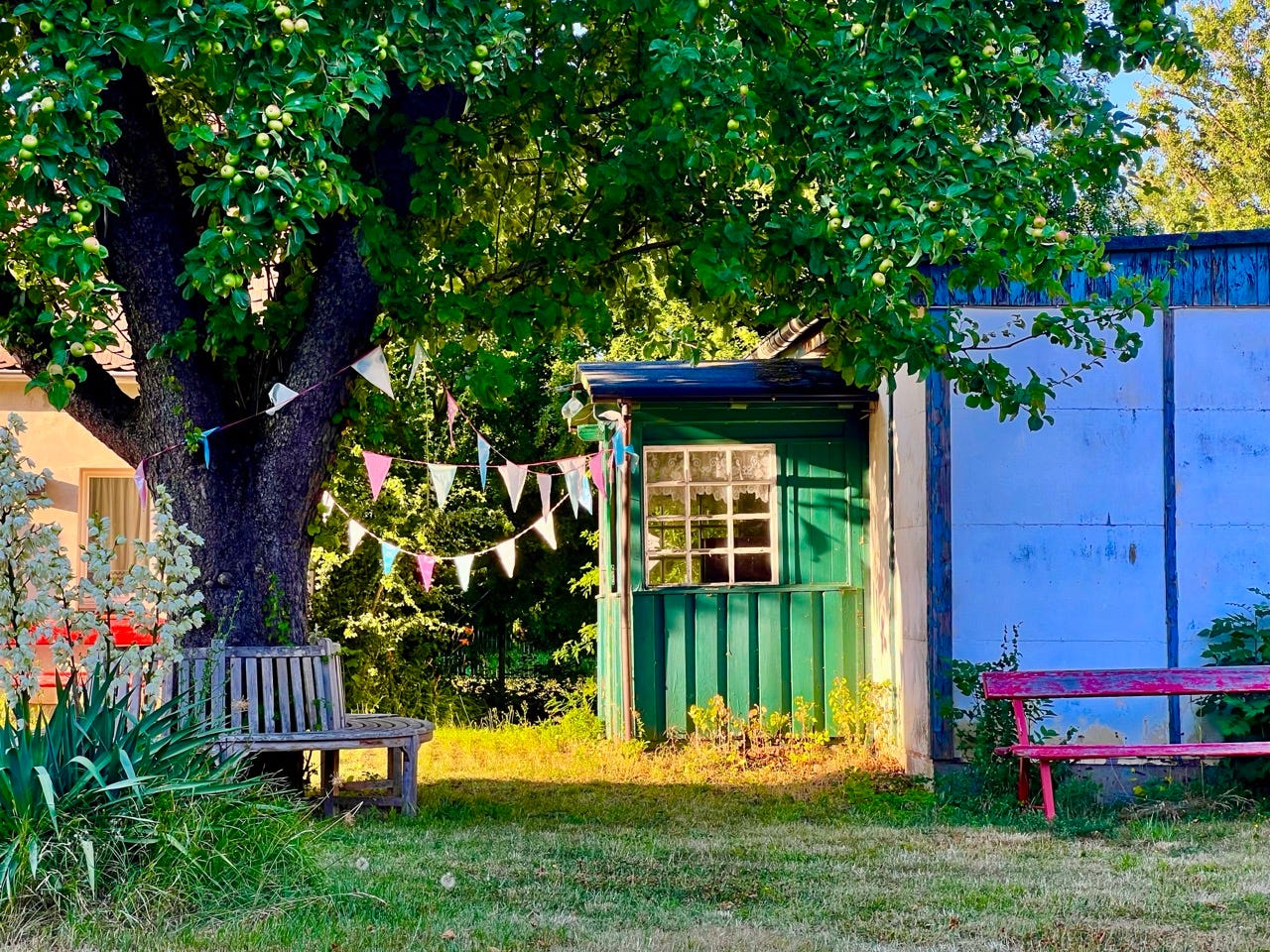
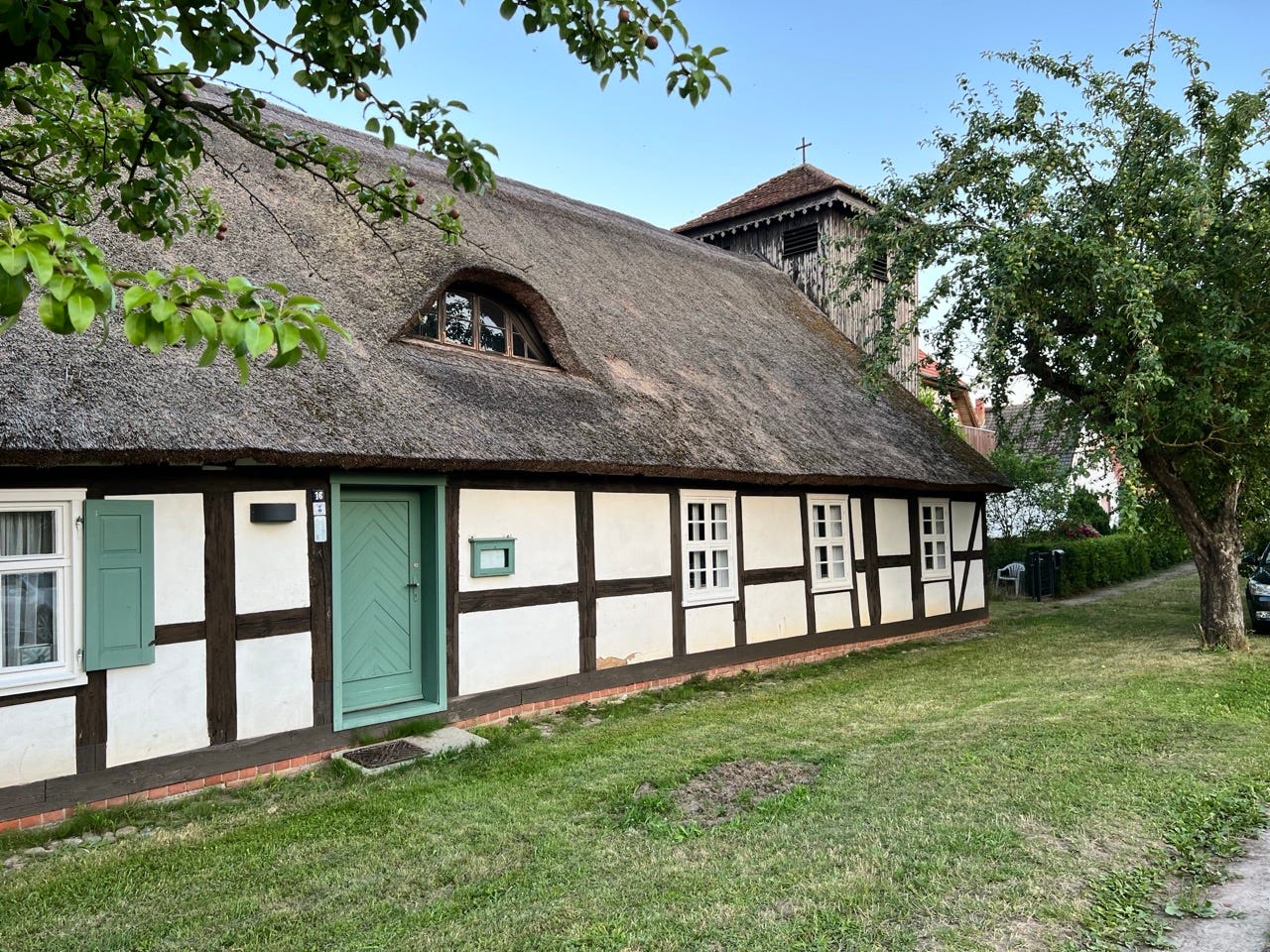
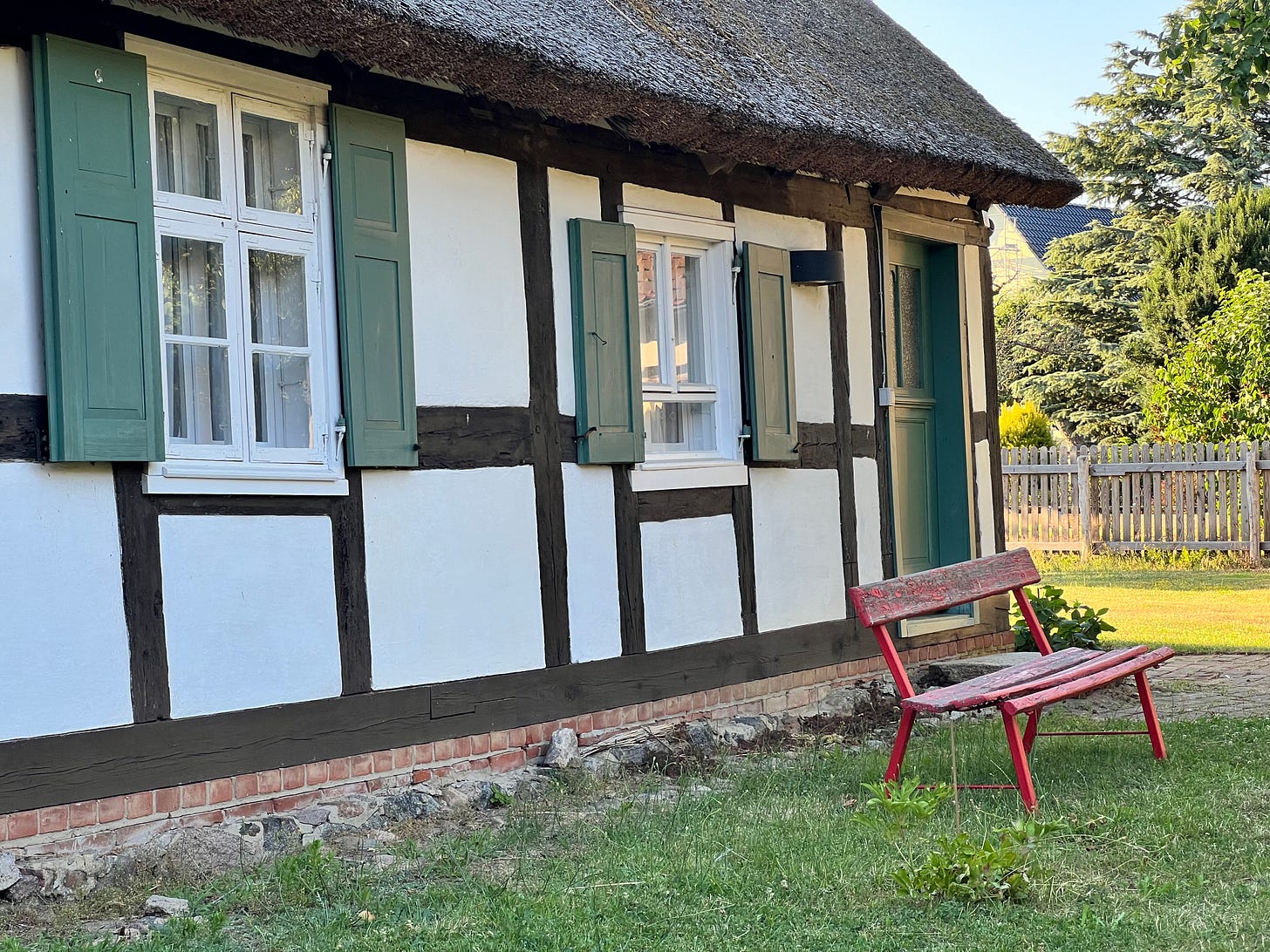
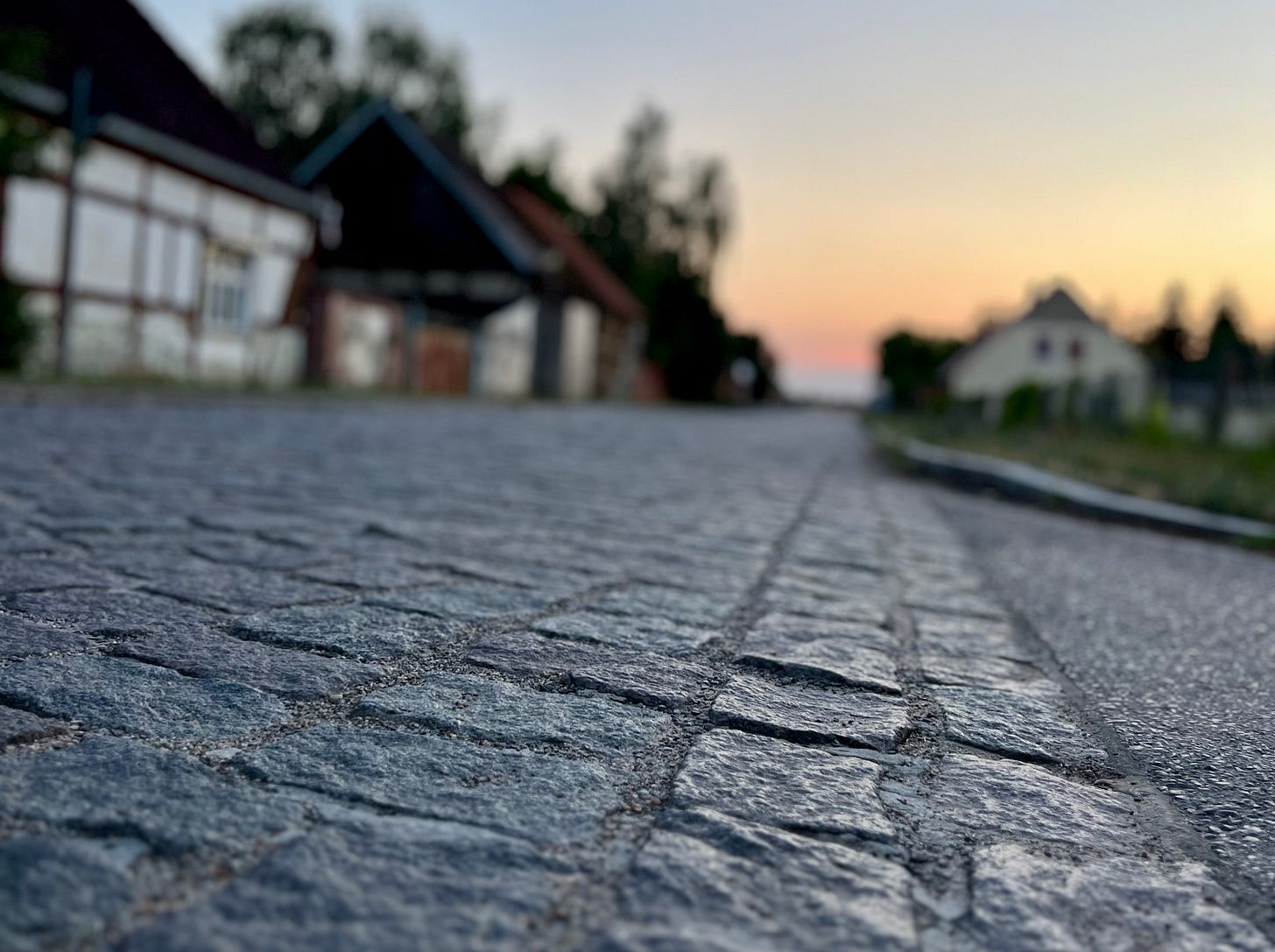
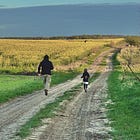
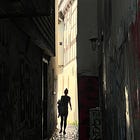

oh your blessings are received, Almut. Thank you for your wonderful multidirectional words and pictures of historical importance. Bruce
In the darkness of this day in America, I needed this bench in the orchard near the chapel. Thank you fr taking me there.